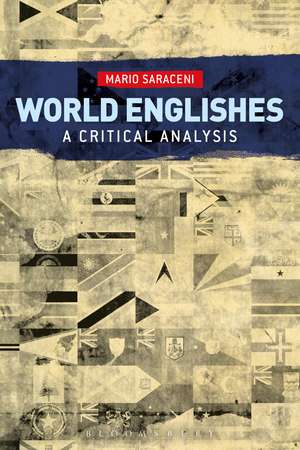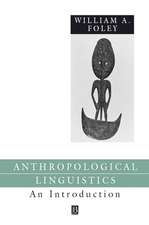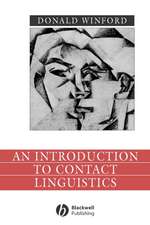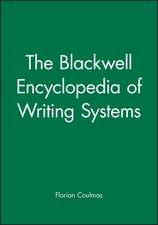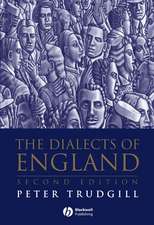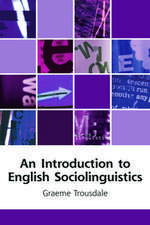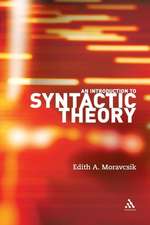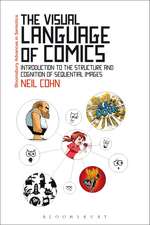World Englishes: A Critical Analysis
Autor Dr Mario Saracenien Limba Engleză Paperback – 25 feb 2015
| Toate formatele și edițiile | Preț | Express |
|---|---|---|
| Paperback (1) | 250.92 lei 6-8 săpt. | |
| Bloomsbury Publishing – 25 feb 2015 | 250.92 lei 6-8 săpt. | |
| Hardback (1) | 948.59 lei 6-8 săpt. | |
| Bloomsbury Publishing – 25 feb 2015 | 948.59 lei 6-8 săpt. |
Preț: 250.92 lei
Preț vechi: 287.87 lei
-13% Nou
Puncte Express: 376
Preț estimativ în valută:
48.01€ • 50.13$ • 39.65£
48.01€ • 50.13$ • 39.65£
Carte tipărită la comandă
Livrare economică 15-29 aprilie
Preluare comenzi: 021 569.72.76
Specificații
ISBN-13: 9781623562632
ISBN-10: 1623562635
Pagini: 224
Ilustrații: 10 maps
Dimensiuni: 156 x 234 x 18 mm
Greutate: 0.36 kg
Editura: Bloomsbury Publishing
Colecția Bloomsbury Academic
Locul publicării:London, United Kingdom
ISBN-10: 1623562635
Pagini: 224
Ilustrații: 10 maps
Dimensiuni: 156 x 234 x 18 mm
Greutate: 0.36 kg
Editura: Bloomsbury Publishing
Colecția Bloomsbury Academic
Locul publicării:London, United Kingdom
Caracteristici
Written in a reader-friendly manner, providing useful references to further readings where appropriate
Notă biografică
Mario Saraceni is a Lecturer in the School of Languages and Area Studies, at the University of Portsmouth, UK.
Cuprins
Preface1. Introduction 1.1 What this book is (and isn't) about 1.2 Why another "World Englishes" book? 1.2.1 Expanding the scope of World Englishes 1.2.2 A slight impasse 1.2.3 New challenges 1.2.4 Old challenges1.3 Understanding language 1.3.1 language as system 1.3.2 Language as social practice Part I: History2. Old Englishes2.1 Introduction 2.2 Mainstream narrative 2.2.1 Metaphorical representations of language 2.2.2 The arrival of English in 449 AD 2.2.3 From closely related to one language 2.2.4 The story of 'Old English' . 2.3 Ideological motivations in the history of English 2.3.1 language and nationhood 2.4 Untidying History 2.4.1 The 'birth' of the English language? 2.4.2 The 'Anglo-Saxons'? 2.4.3 Anglo-Saxon England? 2.4.4 A purely Germanic language? 2.5 Varieties of 'Old English'? 2.6 Conclusion 3. New Englishes 3.1 Introduction .3.2 The story of the 'spread' of English 3.2.1 English everywhere 3.2.2 Two types of colonization 3.2.3 The 'Three Circles of English' 3.2.4 Criticism of the Three Circles model 3.2.5 Schneider's Dynamic Model 3.2.6 Melchers and Shaw's classification 3.3 Beyond the 'spread' metaphor 3.4 The 'prehistory' of World Englishes 3.4.1 American English sets the scene 3.4.2 Seeds of World Englishes in postcolonial writing 3.5 Conclusion: language and politics Part II: Languages4. Understanding World Englishes 4.1 Introduction 4.2 The egalitarian matrix of World Englishes 4.3 Limitations in the paradigm 4.3.1 Equality in diversity? 4.3.2 How different are Englishes allowed to be? 4.3.3 What about the Expanding Circle? 4.4 The 'spot the difference' approach4.4.1 'Errors' or 'features'? 4.4.2 British and American English as yardsticks4.4.3 'In full communion with its ancestral home' 4.4.4 The norms of English .4.4.5 The power of codification 4.4.6 Varieties of language and varieties of race 4.4.7 The linguist gaze and dominant discourses 4.5 Spotting differences in English as a lingua franca 4.5.1 ELF vs. ENL4.6 Conclusion 5 Untidying Englishes 5.1 Introduction 5.2 Cutting the umbilical cord with the ancestral home 5.3 Dealing with English and other languages 5.3.1 Borrowing words? 5.3.2 Language across borders 5.3.3 English and non-English 5.3.4 Switching languages? 5.4 Delving deeper into language hybridity 5.4.1 World Englishes and super-diversity 5.4.2 Geography or language? 5.4.3 ELF across borders 5.5 Conclusion: from World Englishes to Language Worlds Part III: Ideology6. Linguistic imperialism and resistance 6.1 Introduction 6.2 An unequal world6.2.1 Where do the numbers come from? 6.3 Language and empire 6.3.1 American imperialism6.4 Linguistic imperialism 6.4.1 Macaulay's 'minute'6.5 Responses to linguistic imperialism 6.5.1 The 'agency' response 6.5.2 The 'linguistic determinism' response 6.5.3 The 'appropriation' response 6.6 Conclusion Part IV: Pedagogy7. Teaching World Englishes7.1 Introduction 7.2 Which English? 7.3 (Non-)native speakers? 7.3.1 Separate categories? 7.3.2 Myths and discrimination7.4 The paradigm struggles to shift 7.4.1 Acronyms and the (super-)diversity of language education7.5 Conclusion: teaching world Englishes? References Index
Recenzii
This book provides an accessible yet comprehensive critical perspective on the English language(s), power, and inequality. The progression of the arguments is clear and cohesive, effectively guiding the reader to arriving at a critical questioning of basic assumptions about the English language and its use around the world - and thereby providing thought-provoking pathways for advancing and re-revolutionising the WE paradigm. Through this original and challenging volume, the author adeptly achieves his aim of bringing subversion back to the heart of WE research.
A distinctive contribution ... This book offers not only a good overview of the Global English debate, but also novel insights which undoubtedly support a ... growing conceptualization of Global English as non-normative and pluricentral. The strength of this contribution to the discipline lies in its multidisciplinary approach, combining diachronic and synchronic perspectives with insights from language policy, economic linguistics and language ideology.
The definite advantages of the book is its clear language, its lively and engaging style of writing and the variety of illuminating examples which illustrate the arguments of the author.
I would highly recommend this book both to students of World Englishes and to general readers who want a well-written, accessible and up-to-date overview of the field.
As the 2016 winner of the British Association of Applied Linguistics (BAAL) annual book prize, it is no surprise that Mario Saraceni's book is a superb overview of the field of World Englishes (WE). It succeeds very well in tracing the development of WE and the 'egalitarian and revolutionary ethos' that initiated it.
This is by far the best treatment to date of World Englishes. Saraceni integrates the history and spread of English into an expanded subject, and critically surveys the range of approaches -- structural, political, pedagogical -- that have been applied to it. His persistent 'untidying' reveals the reductionism common to all the models developed in our forlorn attempts at conceptual containment of an uncontainable linguistic reality. This he achieves with crystal clarity, pitiless jargon busting, level-headed intelligence, succinctness and humour, along with real human compassion for those speakers of World Englishes who usually get lost in the shuffle of fashionable theories.
Mario Saraceni's new book delivers what is promised in the title, that is a 'critical analysis' of current approaches, theories, and methodologies in the study of world Englishes. The scope and range of the volume is ambitious, as Saraceni provides a contrapuntal reading of the history of the English language from 'Old Englishes' to 'New Englishes', and beyond. The core of the book provides an innovative exegesis of the theoretical origins and development of world Englishes as an academic discipline, before proceeding to suggest alternative approaches to the field. This is followed by a discussion of linguistic imperialism and resistance, as well as a final section dealing with pedagogical approaches to world Englishes. This book is recommended to a wide audience of readers. For those unfamiliar with current debates on world Englishes, this volume provides an excellent overview of the development of the field, as well as recent debates. For those working in the world Englishes paradigm, Saraceni's book is a breath of intellectual fresh air, providing an intellectually stimulating meta-commentary that reveals an impressive understanding of the subject at hand. All in all, this is a remarkable volume, and combines impressive scholarship with intellectual flair, opening up new horizons for the world Englishes paradigm.
A distinctive contribution ... This book offers not only a good overview of the Global English debate, but also novel insights which undoubtedly support a ... growing conceptualization of Global English as non-normative and pluricentral. The strength of this contribution to the discipline lies in its multidisciplinary approach, combining diachronic and synchronic perspectives with insights from language policy, economic linguistics and language ideology.
The definite advantages of the book is its clear language, its lively and engaging style of writing and the variety of illuminating examples which illustrate the arguments of the author.
I would highly recommend this book both to students of World Englishes and to general readers who want a well-written, accessible and up-to-date overview of the field.
As the 2016 winner of the British Association of Applied Linguistics (BAAL) annual book prize, it is no surprise that Mario Saraceni's book is a superb overview of the field of World Englishes (WE). It succeeds very well in tracing the development of WE and the 'egalitarian and revolutionary ethos' that initiated it.
This is by far the best treatment to date of World Englishes. Saraceni integrates the history and spread of English into an expanded subject, and critically surveys the range of approaches -- structural, political, pedagogical -- that have been applied to it. His persistent 'untidying' reveals the reductionism common to all the models developed in our forlorn attempts at conceptual containment of an uncontainable linguistic reality. This he achieves with crystal clarity, pitiless jargon busting, level-headed intelligence, succinctness and humour, along with real human compassion for those speakers of World Englishes who usually get lost in the shuffle of fashionable theories.
Mario Saraceni's new book delivers what is promised in the title, that is a 'critical analysis' of current approaches, theories, and methodologies in the study of world Englishes. The scope and range of the volume is ambitious, as Saraceni provides a contrapuntal reading of the history of the English language from 'Old Englishes' to 'New Englishes', and beyond. The core of the book provides an innovative exegesis of the theoretical origins and development of world Englishes as an academic discipline, before proceeding to suggest alternative approaches to the field. This is followed by a discussion of linguistic imperialism and resistance, as well as a final section dealing with pedagogical approaches to world Englishes. This book is recommended to a wide audience of readers. For those unfamiliar with current debates on world Englishes, this volume provides an excellent overview of the development of the field, as well as recent debates. For those working in the world Englishes paradigm, Saraceni's book is a breath of intellectual fresh air, providing an intellectually stimulating meta-commentary that reveals an impressive understanding of the subject at hand. All in all, this is a remarkable volume, and combines impressive scholarship with intellectual flair, opening up new horizons for the world Englishes paradigm.
